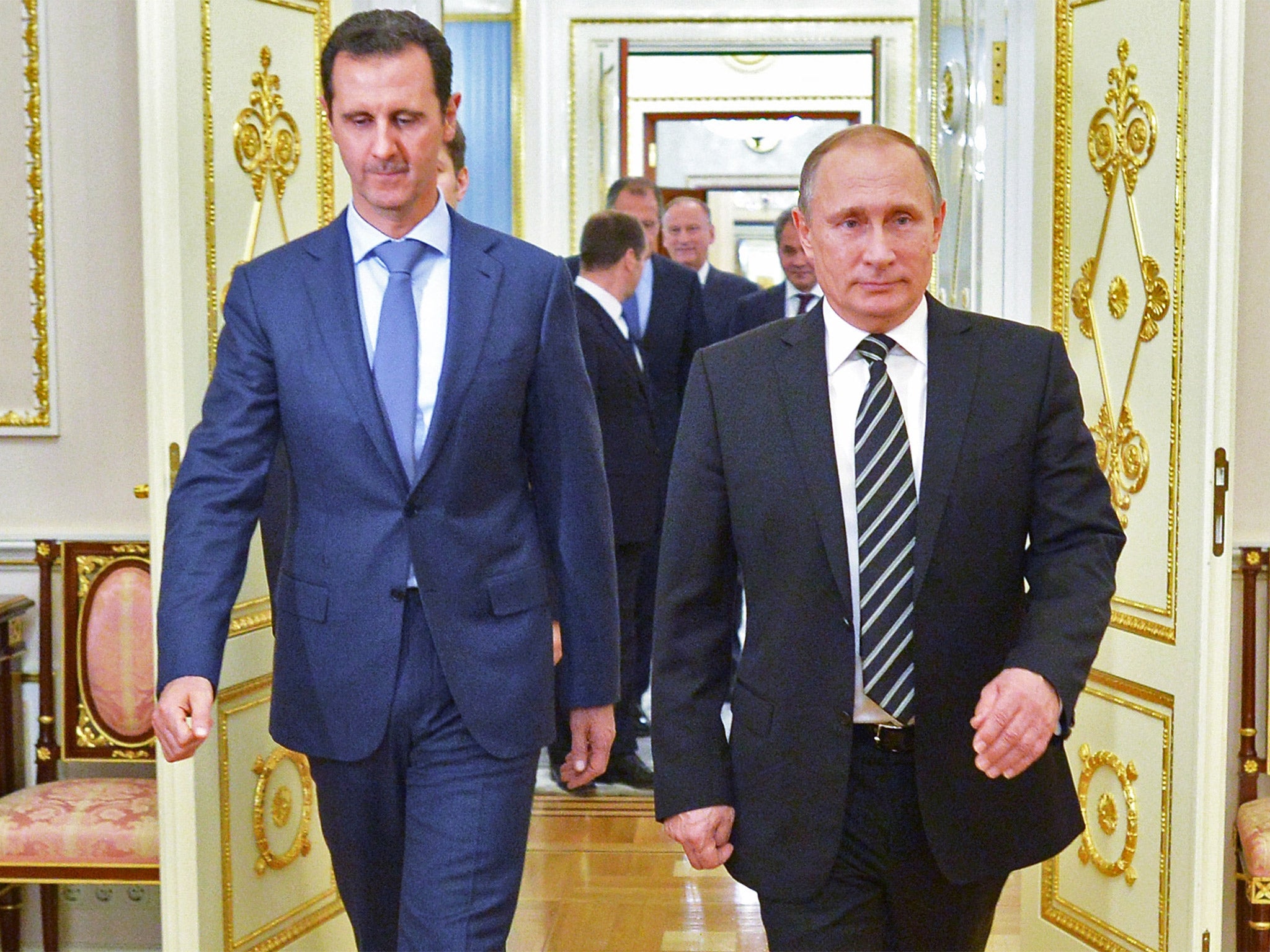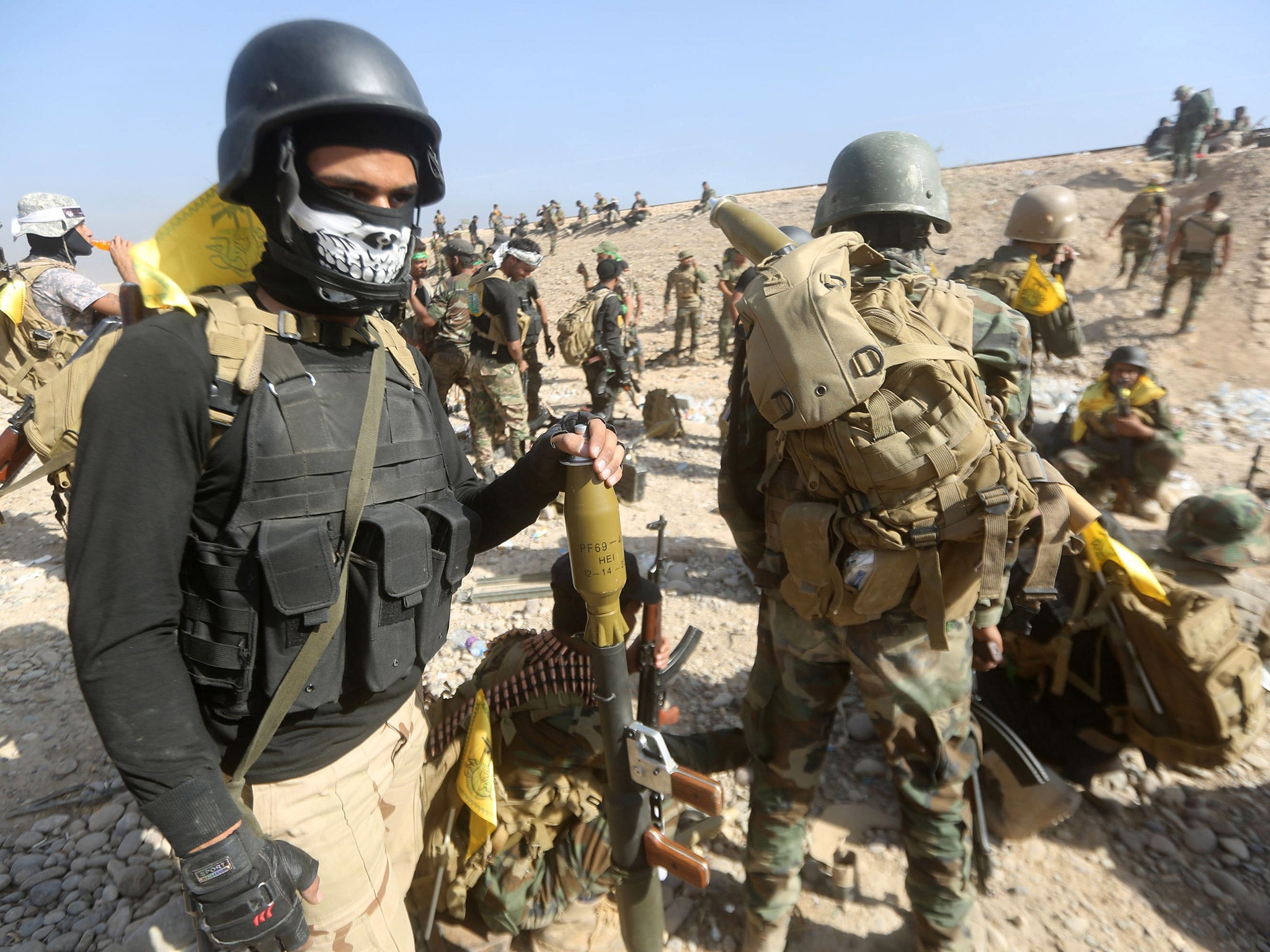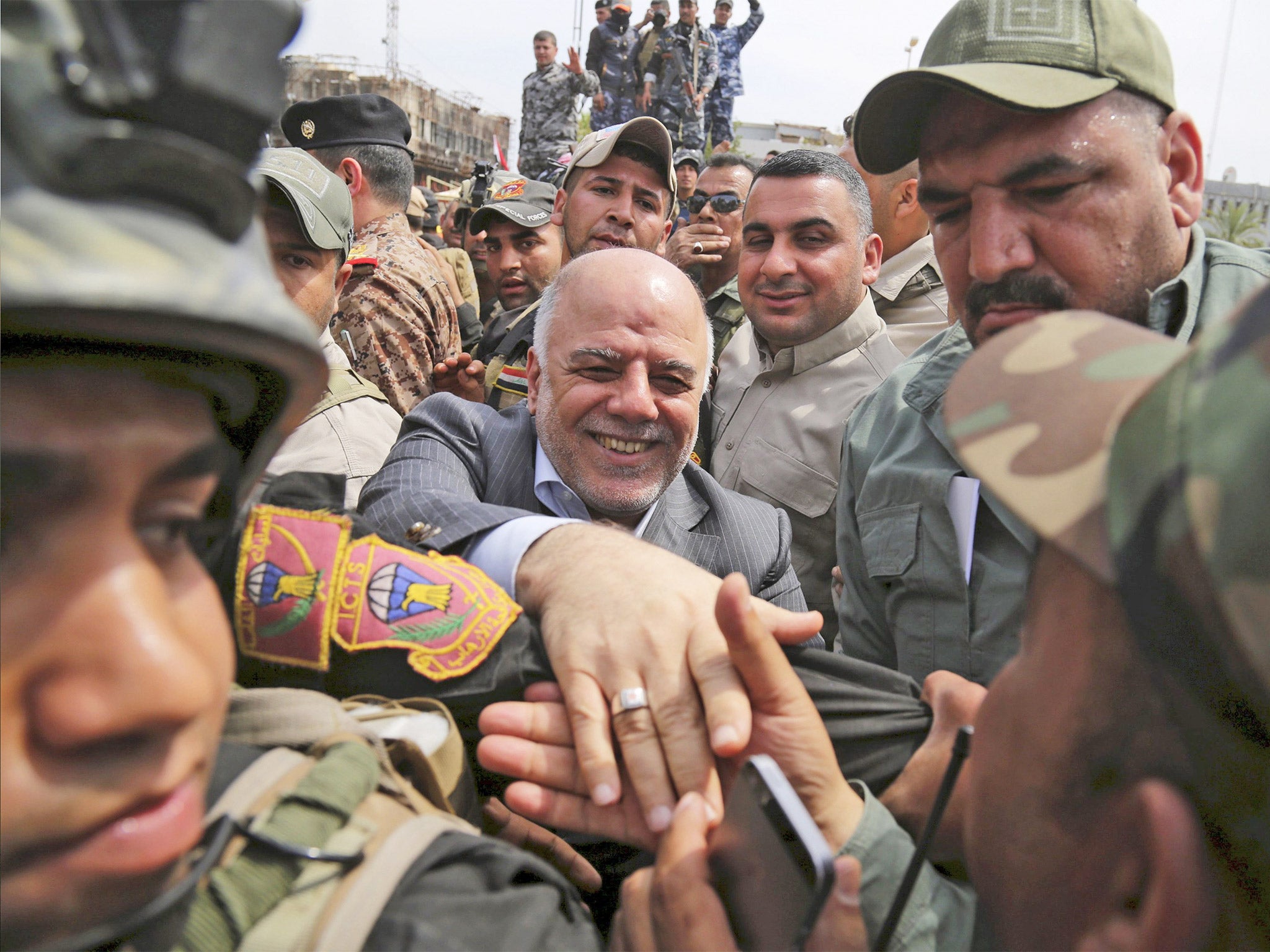Isis in Iraq: Shia leaders want Russian air strikes for battle against militant threat
Prime Minister, Haider al-Abadi, under 'tremendous pressure' from his ruling National Alliance group to call for military help like that received by Syria

Your support helps us to tell the story
From reproductive rights to climate change to Big Tech, The Independent is on the ground when the story is developing. Whether it's investigating the financials of Elon Musk's pro-Trump PAC or producing our latest documentary, 'The A Word', which shines a light on the American women fighting for reproductive rights, we know how important it is to parse out the facts from the messaging.
At such a critical moment in US history, we need reporters on the ground. Your donation allows us to keep sending journalists to speak to both sides of the story.
The Independent is trusted by Americans across the entire political spectrum. And unlike many other quality news outlets, we choose not to lock Americans out of our reporting and analysis with paywalls. We believe quality journalism should be available to everyone, paid for by those who can afford it.
Your support makes all the difference.Iraqi political and military leaders are demanding that the government follow Syria in requesting Russia to start air attacks on Isis fighters in Iraq.
Two members of parliament are quoted as saying that the Prime Minister, Haider al-Abadi, is under “tremendous pressure” from his ruling National Alliance group to call for Russian military help.
The intensity of Russian air strikes in Syria against al-Qaeda-type movements, including Isis, has impressed Shia militia officers in Iraq who command larger and more effective forces than the regular Iraqi army.
President Bashar al-Assad of Syria underlined the strength of his relationship with Russia on Tuesday by visiting President Vladimir Putin in Moscow, his first trip out of Syria since the start of the uprising in 2011, to thank him for his support. The Russian defence ministry said that Russian planes had made 46 sorties and hit 43 targets in the previous 24 hours.
Mr Abadi has argued that Iraq risked alienating the US by asking for Russian air support, but his political position is weak and his government has failed to win back territory lost to Isis over the last year. Shia leaders say that their military forces are hampered by the US refusal to carry out air strikes in support of the Shia militia forces. These are better motivated and disciplined than the Iraqi army, which has never recovered from its defeats by Isis last year.

Russia is increasingly acting in support of the Shia states in the Middle East and is a member of a Baghdad-based intelligence cell to which Iran, Iraq and Syria also belong. A US-led coalition has carried out more than 7,000 air strikes in Iraq and Syria against Isis and other Sunni jihadi groups since August 2014, but six months ago Isis was able to capture Palmyra in Syria and Ramadi in Iraq.
Mr Abadi may not wish to call for Russian air strikes, but he is coming under increasing criticism in Iraq for being indecisive and ineffective. The most powerful Shia paramilitary groups – the Badr Organisation, Ahrar al-Haq and Ketaib Hezbollah – frequently act independently of the government in Baghdad and are seen as being under Iranian influence.

A special report by Reuters describing how militias have come to outgun the state in Iraq says that they number 100,000 men and that most young Shia men avoid the army and “now prefer to join the paramilitary groups, which are seen as braver and less corrupt”. Iraq’s defence ministry has largely come under militia control, with 70 per cent of those working there giving their first loyalty to the paramilitaries. One army division, out of the five still functioning, is alleged to take its orders directly from militia commanders.
The US is paying the price for refusing to give air support to the Syrian army and the Shia militias in Iraq on the grounds this would enable Mr Assad to stay in power and would alienate the Sunni minority in Iraq. But experience shows that, for air power to succeed, it needs a well-organised military partner on the ground able to give up-to-the minute intelligence and identify targets for attack by planes and drones. The US has been able to do this only in coordination with the Syrian Kurds, who have defeated Isis in a number of battles.
Join our commenting forum
Join thought-provoking conversations, follow other Independent readers and see their replies
Comments